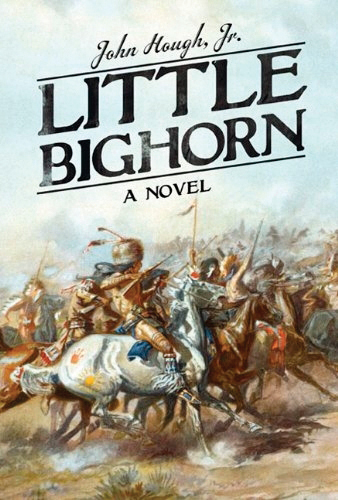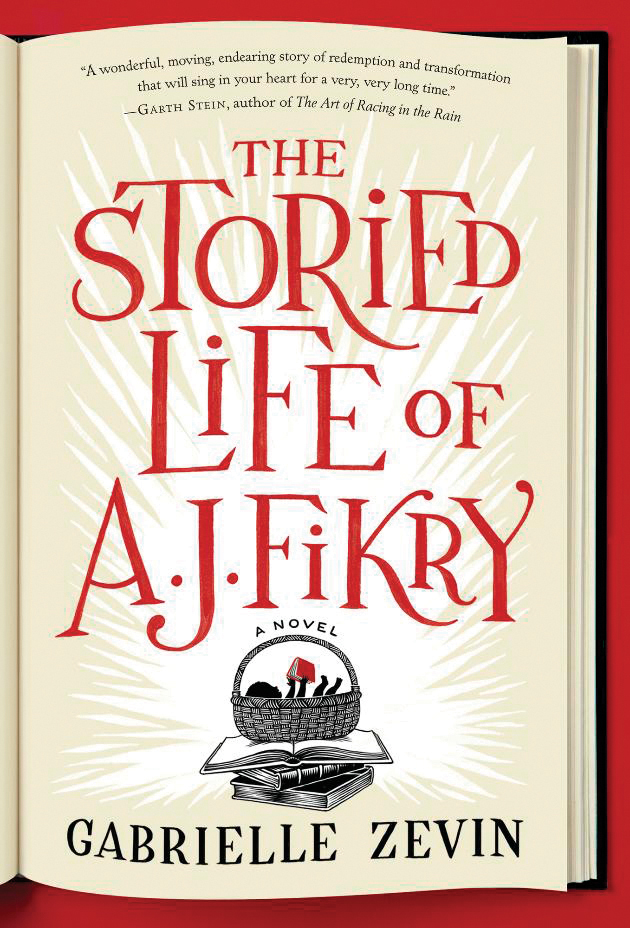 Little Bighorn: A Novel
Little Bighorn: A Novel
By John Hough Jr.
In the field of historical art, it’s hard to think of any subject more thoroughly troweled than George Armstrong Custer’s infamous Last Stand. Over the years, countless paintings, songs, films, and books have glorified, pilloried, or merely re-examined the fancifully tonsured general and his disastrous campaign against Crazy Horse during the Great Sioux War. So there’s some counterintuitive wisdom at work when West Tisbury novelist John Hough Jr. opens his novel Little Bighorn (Arcade Publishing, $24.95) in New York City, and with a most unlikely paradigm – the mother who wants her son to go to war instead of Harvard. Actress Mary Deschenes is intent on making a man of young Allen Winslow when she convinces her lover, General Custer, to hire the boy as a battlefield scribe. Winslow’s first assignment: accompany teenage orphan Addie Grace Lord out to Fort Lincoln to be reunited with her brother George, an army surgeon. On the train ride west, Allen and Addie Grace fall in love. When the 7th Cavalry Regiment lights out for Indian territory, their epistolary romance provides a backbone for the rest of the fact-based tale.
We all know how this one is going to end. Hough has clearly embedded himself in research, expertly teasing out many of the incidents, missteps, and interpersonal conflicts that led up to those two fateful days in June 1876. As for the battle itself, it comes off with enough precision and verve that despite the (over) complexity of movement, you will still be drawn to the edge of your seat. (Or bed. Take note: this reader needed an Advil PM when she got through the penultimate chapter.) If the author shows less dexterity with emotional nuance – Custer remains a puzzling sketch of a man, his lieutenants frustratingly interchangeable, the young lovers ultimately get short shrift – it’s a flaw that doesn’t detract much from the bigger story. Ultimately, Hough has fulfilled a difficult mission here, if not for a warrior then certainly for a writer: he has charged bravely into well-charted territory and emerged with something fresh, and full of life.
The Storied Life of A.J. Fikry
By Gabrielle Zevin
Looking for a book where not so many people get killed? Let me direct you over to the aisle where we keep books we like to hand-sell. Hand-selling is an old-fashioned term for what booksellers do when they find something they particularly like, a book that maybe hasn’t gotten much attention, and they want to share it with their customers. A novel, for instance, like The Storied Life of A.J. Fikry (Algonquin Books, $24.95). This one’s about a man who owns a book shop on an island off the coast of Cape Cod and some of the sad, mundane, and miraculous things that happen to him over the years. But really this is a book about books, and small bookstores in small towns, and why they are beautiful and why they matter. Gabrielle Zevin, who is a successful author of young-adult novels, handles her at times heavy subject with a light touch and considerable charm. This isn’t a book that’s vying for a spot on the Great Works shelf. But, as I’m sure Zevin and her protagonist would agree, that’s why book lovers have so many shelves.
Sprinkled throughout The Storied Life of A.J. Fikry are short reviews, written by a dying Fikry, that make up a suggested reading list for his young daughter. One of them is The Bookseller, a short story by Roald Dahl. Fikry considers it a lesser work for Dahl, and then explains why he has included it anyway. “The answer,” he writes, “is this: Your dad relates to the characters. It has meaning to me. And the longer I do this…the more I believe that this is what the point of it all is. To connect, my dear little nerd. Only connect.”
Exactly.
And keep in mind… friends and colleagues remember a great American (and Vineyarder) in Dixie Redux: Essays in Honor of Sheldon Hackney… Thomas Dresser, Herb Foster, and Jay Schofield give us Martha’s Vineyard in World War II… Linda Fairstein returns with another Alexandra Cooper novel, Terminal City…Amira Thoron debuts her intimate poetry collection For My Father… and Barbara Dourmashkin-Case delivers a cross-Island caper for the under-eight set in Peggy Day’s Martha’s Vineyard Adventure.




